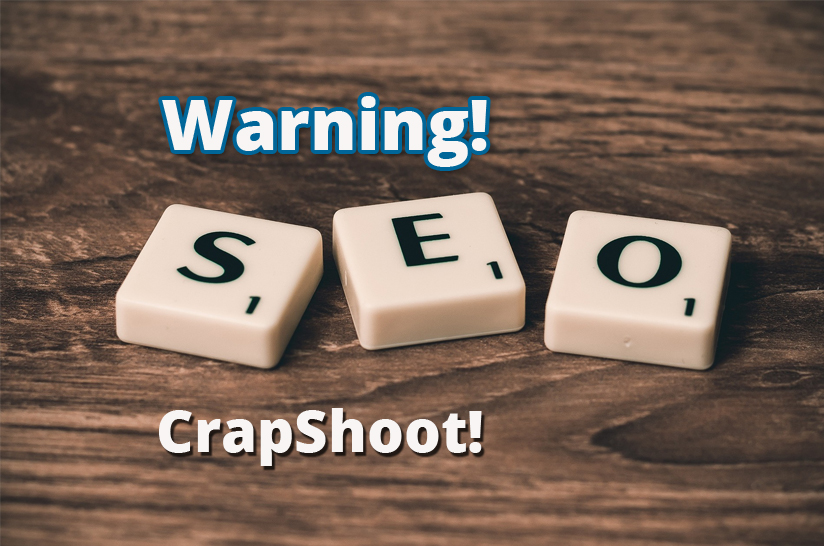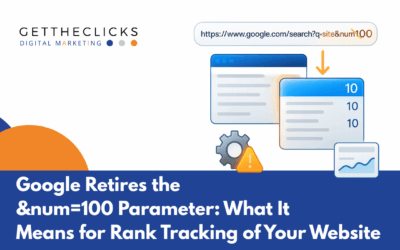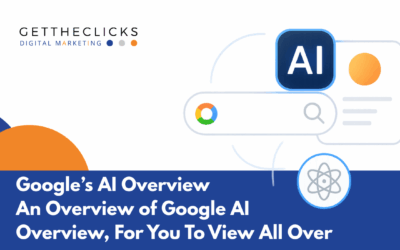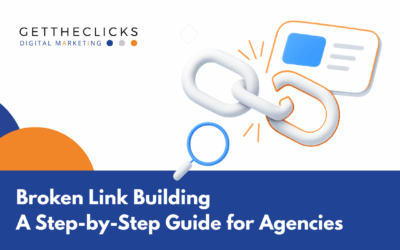What I’m about to tell you is based on facts I have been given by sources I’m not going to reveal, but they are true; this isn’t fake news. If I’m lying, then may God strike me dead with lightning.
What if I told you that everything you think you know about SEO is completely wrong? What if I told you that the way SEO (Search Engine Optimization) works is a bigger racket than politics in Washington DC? What if I told you that SEO is just a huge game, and we’re all pawns in it? I promise, what you are about to read is not published on any other web marketing website. It isn’t published in any major magazine or with any news organization because no one really wants you to know.
Why would I tell you this? It’s because you deserve to learn the truth.
The Game Known as “The Internet”
We are all sheep; sheep who are manipulated every hour of the day into one distraction or another; sheep who are motivated by money and the opportunity to make more.
Look around you. People are constantly glued to their mobile devices, posting to Facebook about their lives, reading the latest news on Donald Trump, or watching the most recent cat video. Mobile devices are even designed to draw our attention with flashy notification alerts and colorful screen layouts which spark our curiosity at a moment’s notice. This phenomenon makes people feel “connected” or “engaged”. But the better way to define this is by saying, “The system is designed to keep us distracted from reality, and to place us as pieces on its board.” Your digital umbilical cord is slowly but surely wrapping itself around your neck.
None of this should really be news to you, and you may be asking yourself, “What does this have to do with SEO?” The internet, your phone, and SEO are all components of the aforementioned game, but how?
What is Google?
Google is like Kleenex; it’s a brand that represents an entire commodity. It’s not the only search engine out there, but it damn well could be. So what is Google? If you ask that question, you’ll probably get some uncomfortable stares, but from a definition, the answer might be that it’s a free search engine with Ads. This is the first illusion in the game, because Google is more a Paid Search Engine that also has some “free” space on it. It’s a subtle but important distinction.
What is SEO?
Search Engine Optimization, or SEO, is the work performed to bring a website into that “free” space. The greatest misconception about SEO is that it’s an affordable way to market your business. Sure, it’s an amazing way to get leads, but it’s also a very difficult path to travel because the “free” space is shrinking rapidly, and the result is creating a much tougher field of competition. Knowing this, the search engines slowly drive business owners to their paid model, all the while keeping the notion of SEO alive, pushing their overall financial agenda.
What are the Three Components of SEO?
Before we get into that opportunity, it’s important to understand the three major components of SEO:
• Relevant Content
• Website Technical Attributes
• Links
Now, Relevant Content should feel like common sense. Consumers look for specific things, and the search engines (Google, Bing, Yahoo, etc.) want to show only the most appropriate, or relevant, results for that search. With the right knowledge, it’s possible to manipulate content to have an edge over everyone else out there. It’s organic. It’s no big surprise.
Having good Technical Attributes on a website should also feel like second nature. When we say Technical Attributes, we mean how a website is constructed and displayed to the world. It shouldn’t be a surprise that this is equally as important as content.
Then there are Links. From here on out, links are going to be the core topic of this lesson; because this is where the game is played.
SEO Links – The Great Crapshoot of the 21st Century.
I hope by the time you read this, you understand the general concept of what a link is, specifically contextual links . If you don’t, you just witnessed one in action. Do you know why search engines place a great amount of emphasis on contextual links to drive SEO? The official story is rooted in the belief that when you read content you like, you are going to create a link to it. The search engines argue that people will actually to do this. Now, call me cynical, but when is the last time you have created a contextual link to another website? The answer is a probably NEVER!
Having said that, there is a form of linking that everyone is familiar with, and we call it Social Linking. You see a funny video, read an interesting article, or find a great meme, what do you do? You’re going to share it, whether on Facebook, Twitter, Instagram, Pinterest, and so on, until you’ve made sure everyone can see what you laughed at or found interesting. So while we all know how to do this form of linking, Social Sharing is a fundamentally different tactic from SEO linking. Social Sharing is natural, it’s impulsive, spur of the moment, and it feels organic. It’s easy to make sense of.
So why would companies the size of Google, Yahoo and Bing base a huge portion of their algorithm on the concept of building SEO links when they know most of the sharing you do is only on social networks? Furthermore, why would they create an environment wherein SEO companies can place links onto sites to manipulate search results to give their clients an edge? Why would they allow that? The answer is simple: It makes them more money.
SEO is Not for the Faint of Heart
SEO is a constant battle. You move two spaces on the board only to have it say “go back one”. On top of that, occasional algorithm updates (usually disguised as a cuddly animal name) come along and every SEO company holds their collective breath, hoping that Google didn’t just change its mind about something they agreed upon only six months ago. We like to say Google changes its mind faster than a kid in a candy store, and there’s a reason for it. Now, not to boast about our knowledge, but when you came across our site, it’s probably because you found us at the top of Google with the most positive reviews. This means that we’re beating all the other SEO companies in town at their own game. This happens because we actually know how this game is played, and we’re damn good at it. But it comes at a price that many business owners simply don’t understand.
Google & Chrome, Bing & IE, Apple & Safari, Yahoo – all For Profit companies
Each search engine and their parent companies are “For Profit” publicly-traded companies who have to answer to stockholders. While each has their own ad revenue system (Google Adwords, Bing Ads, Yahoo Gemini, etc.), the ads only generate them money if they are being delivered to end users. Thus, the more opportunity they have to deliver them, the more likely they can reach these end users, and therefore more money. This is a significant reason as to why the ad space on search engines has grown in the last year, but there’s still the pesky “free” space that they need to leverage. So how do they do that? This is where the circle completes, because the answer is a simple acronym: SEO.
In a perfect world, search engines don’t want you paying for SEO, they want you paying for ads. It’s money directly in their pockets. However, search engines know that a vast majority of people/businesses prefer SEO because it carries the stigma of being cheaper. So what did all of these search engines do to attract these price shoppers? They didn’t just embrace our naivety; they decided to leverage our ignorance. The SEO industry still exists to this day because we are the system that funnels more opportunity for the paid agenda. If the end consumer is the pawn, we are the knights; still on the board, playing the same game, but facilitating those pawns reaching the end goal.
We discussed links and how their involvement drives SEO, drives the whole machine. In order to do this, SEO companies need to create more opportunity for links by creating more content, which in turn creates more ad space for the ad networks.
For them, links are a mechanism to keep the end user engaged, and suck them deeper into the content chasm. They allow companies like us to manipulate this system because it drives people through their ad funnel, and drives their profits. Search engines recognized very quickly that the more pages they could place ads on, the more opportunity for profit is made. So they pushed to make that concept move forward with SEO. SEO essentially creates more real estate to place more ads on.
The Brilliance in Their Approach
Knowing that search engines setup SEO in such a way that content and links have to be created to be successful, and that paid ads will show on as many pages as possible, SEO becomes a self-fulfilling prophecy for pay per click and pay per impression . Where their game really takes off is that they throttle the speed at which SEO companies can progress, and you (the business owner) will throw your hands up in the air and say, “SEO is taking too long! At this pace it will take a year before I make it to the top. I might as well run the Ads while I wait for the SEO to catch up.” So all the while you’ve been pushing their agenda of ad space, generating revenue for them, all for something that will take a long while before you see a result. They are effectively milking you for all you are worth. Check.
The Social Equation
We previously discussed how Social Media is its own metric when it comes to traffic, but it’s also part of this grand game that Google plays. By now you know that the very fabric of SEO is content and links, but they are also leveraging behavior of users on social networks. Google tried to push this agenda themselves with Google+. Do you remember that platform? I don’t either. But that doesn’t mean they didn’t appropriate their strategy across all other platforms.
Let me illustrate: When you get links for SEO, a site like CNN is significantly more powerful than a site like Joe the Plumber. Why? Simply that CNN is a recognized brand, and Google wants you to have powerful friends. A quality SEO company will recommend getting links from sites like CNN, and Google will reward you with tons of rank improvements, because you’re playing within the rules. But there’s another step that you’ll take. They also figured you’re going to be proud of getting a mention on CNN or the link, and you’ll post about it on Facebook, Twitter, Instagram, etc. “Hey everyone! We were just featured on CNN!” Everyone is going to see how awesome you are; you’re going to look great, you’re going to benefit, and CNN is given additional ad space to sell on the article they read. Google served this ad, got paid for the impression, got paid if it was clicked, and the web browser you used to get there gets a tiny kickback from the ad network. You got a rank increase and some recognition, but Google got the revenue. Checkmate.
Taking Advantage of Your Position
Just because you’re playing in the game does not mean its bad for you. In fact, innovative SEO companies recognize this and are working hard to establish relationships with top-tier publishing brands to get their clients featured. Want to be on Forbes, Inc Magazine, Entrepreneur, or the NY Times? Do you want your blog syndicated on CNN? Guess what, we can make that happen. With the right connections, national media outlets can be convinced to feature almost any business in their digital magazines. This creates a huge boost in any SEO campaign, especially on a local level because a link from a major national publication carries serious weight with Google. So while SEO may be the longer path, this process can generate a significant amount of recognition pretty quickly.
So the next time you read an article in Entrepreneur Magazine online you may ask yourself if a company like ours was behind the article. Or perhaps the next time you watch a slideshow on CNN and notice new ads popping up every time a new slide loads, you wonder who was behind that story. Chances are the text in the article and the text below the slide will have a link giving someone the ability to go to another page. It’s all a big racket. It’s all a big crapshoot and it’s driven by links, links, and more links.
Why am I telling you all this? – Because I want you to understand what you are getting yourself into. Don your battle gear, roll the dice, and prepare for the long haul. Anyone who is telling you they can get you ranked in 90 days is full of it. The web is littered with businesses that have had horrible SEO experiences. You can choose to be one of them, or you can choose to grow your online business the right way.
Still want to get into SEO? We certainly know how the game is played, but it’s not done for $500/month. It takes time, blood, sweat and tears. Sure the rewards are amazing, but all too often it makes more sense to short-circuit the entire process and run a quality Pay per Click campaign instead. After all, it’s the whole point to Google’s game, so why spend time playing when you can save that time and just win from the beginning.





